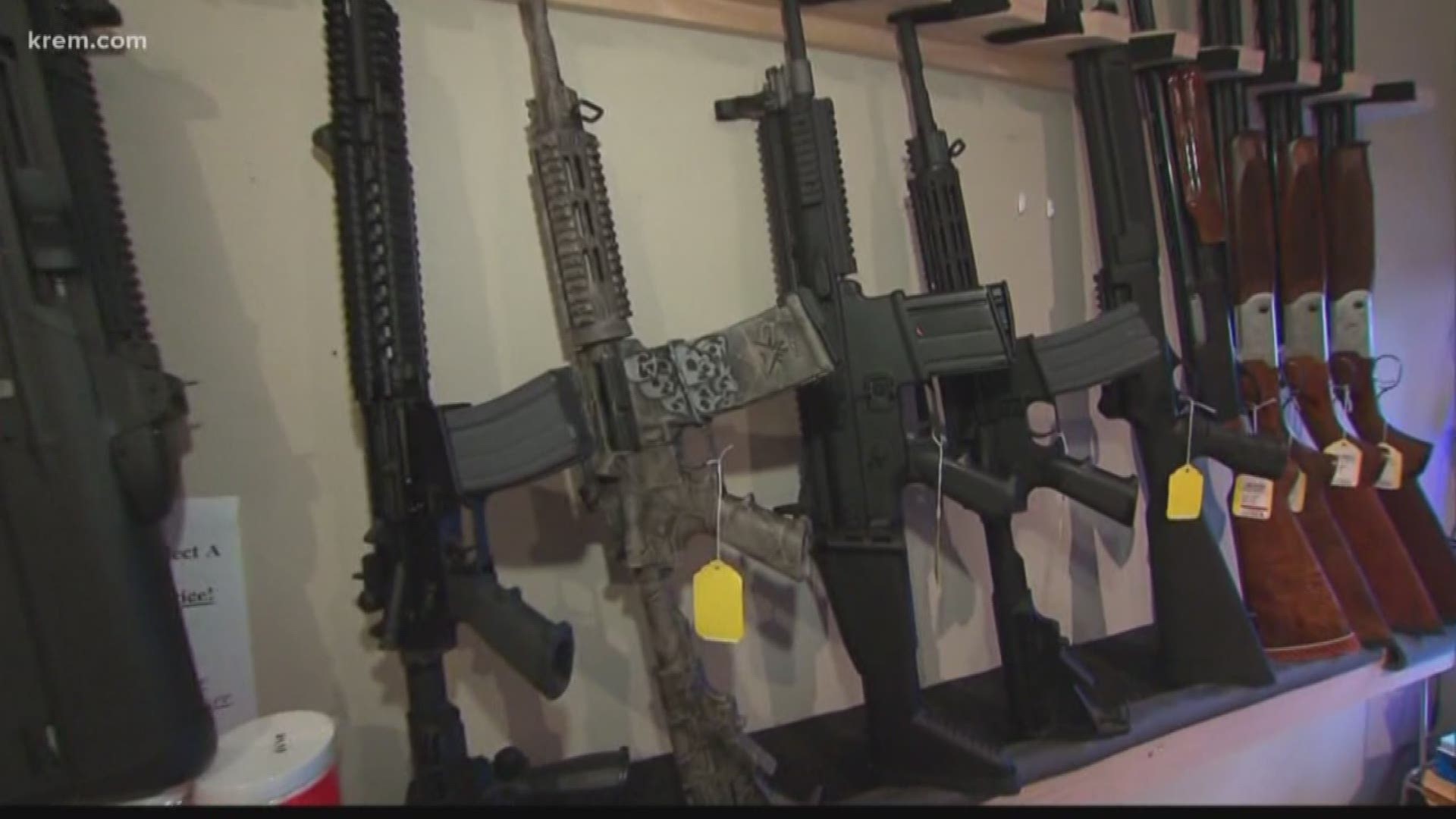SPOKANE, Wash. — New restrictions for buying a semi-automatic rifle in Washington state go into effect on Monday, July 1.
Nearly 60 percent of Washington voters passed I-1639, an extensive gun reform initiative, during the November election. Some provisions of the law began in January, with others slated to begin on July 1.
On Jan. 1, the new law made it illegal for a person younger than 21 years old to buy a semi-automatic assault rifle in Washington state, among other provisions. The law also bans gun sales to out of state residents.
In November, a Spokane gun dealer and a member of the Army Reserve were among five Washington residents who announced a lawsuit against the state over I-1639.
The National Rifle Association and Second Amendment Foundation have also filed a join lawsuit challenging the initiative.
Washington Attorney General Bob Ferguson says the law is still presumed constitutional and in force unless a court rules otherwise. He added that failure to comply with the law could result in criminal or civil liability.
On July 1, the following I-1639 provisions take effect:
- Enhanced background check and waiting period requirements for the purchase of semi automatic assault rifles.
- Training requirements to purchase a semi automatic assault rifle
- Criminal liability for failure to safely secure a gun under certain conditions
- Safety warning and storage requirements for dealers
A handful of law enforcement personnel through Washington state have said they will not enforce the law since its passage. Sheriffs who have said they will not enforce the law reside in Grant, Benton, Stevens and Klickitat Counties, to name a few.
Spokane County Sheriff Ozzie Knezovich called I-1639 unconstitutional but said that other sheriffs are "grandstanding" by not supporting it. He said there is "nothing for us [sheriffs] to enforce."
The Washington Attorney General’s website provides a breakdown explaining discretion police chiefs and sheriffs can use in enforcing the law.
Law enforcement responsibility
Police chiefs and sheriffs are required by law to perform an enhanced background check on any person attempting to purchase a semiautomatic rifle.
State law provides immunity to local law enforcement officers who run background checks in good faith.
If a sheriff or police chief refuses to perform the enhanced background check, they could be held liable if there is a sale or transfer of a firearm to an individual prohibited from possessing one and that individual uses the firearm to do harm.
In that case, taxpayers in the city or county would assume the financial risk from the police chief or sheriff’s decision.
Firearm sales, and pistol sales or transfers, were subject to enhanced background checks prior to the passage of I-1639. However, beginning on July 1, semiautomatic assault rifles are also subject to background checks.
This means the chief of police or sheriff must provide a written notice to the dealer of whether the purchaser is eligible to possess a semiautomatic rifle and if the application to purchase is approved.
'Secure gun storage' section
When I-1639 was passed, many people voiced concerns about the “secure gun storage” section of the initiative. Many law enforcement personnel have said the section is vague, as it does not require that the firearm be stored in a particular place or way.
It states that a gun owner can face a felony or misdemeanor charge of “community endangerment due to unsafe storage” if their gun ends up in the wrong hands and is used to commit a crime or otherwise threaten the safety of others.
If a person’s firearm is stolen and used in a crime, they will not be liable if they report it as stolen.
“Secure gun storage” is defined under I-1639 as a “locked box, gun safe, or other secure locked storage space designed to prevent unauthorized use or discharge of a firearm.”
Beginning July 1, firearms dealers are required to offer to sell or give purchasers a secure gun storage device or trigger lock. Dealers who fail to do this could be subject to a civil infraction.
Firearm safety training
The firearm safety training requirement only applies to the purchase of semiautomatic rifles purchased after July 1, 2019. It does not apply to other types of firearms.
A dealer must now be provided with proof that a purchaser has completed a recognized firearm safety training program within the past five years.
The training must be sponsored by a federal, state, county or municipal law enforcement agency, a college or university, a national recognized organization, or a certified firearms training school.


